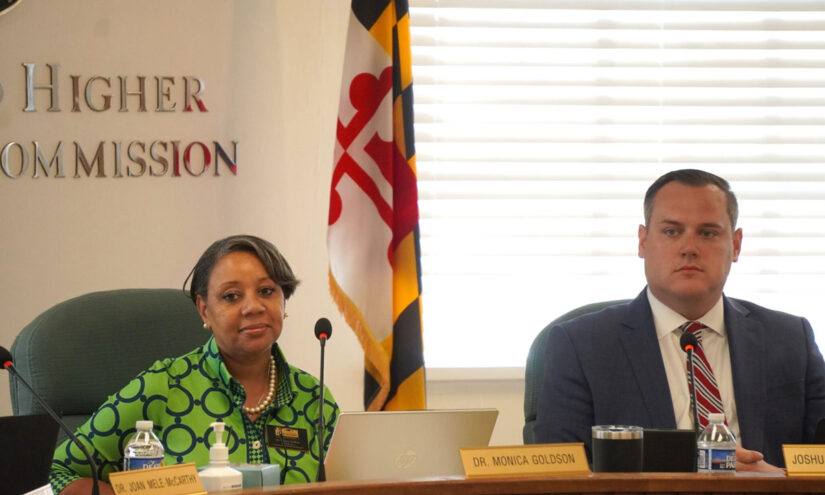Reflecting on the tenets that shape our educational practices is fundamental for …
Maryland Board of Education Divided Over Literacy Policy Impacting Third Graders
Emma Wordsmith

Some members expressed concern on Tuesday as the Maryland State Board of Education assessed a proposed literacy policy that might result in third-grade students facing retention due to reading challenges, with one member deeming it “harmful to children.”
Susan Getty, a board member with 40 years of experience in education, including 35 years in prekindergarten and kindergarten teaching, criticized the policy as “not a viable option and detrimental to children, not aligning with best literacy practices.”
During a lengthy 90-minute discussion, board member Joan Mele-McCarthy highlighted the need for further research on the policy. Citing the National Association of School Psychologists, Mele-McCarthy pointed out their lack of endorsement for retention policies, especially those solely based on test scores.
“I don’t know if I can be in support of this. I need a lot more,” expressed McCarthy, who serves as the executive director at The Summit School in Anne Arundel County.
However, state school officials, led by State Superintendent Carey Wright, defended the draft policy, emphasizing its foundation in research.
Tenette Smith, executive director of literacy programs and initiatives at the Maryland State Department of Education, cited a study conducted last year demonstrating the positive impact of retention policies on academic performance, especially in states with comprehensive literacy plans.
The policy, currently under review after receiving approximately 900 comments, mirrors a model implemented in Mississippi during Wright’s tenure as state schools superintendent, where literacy scores and graduation rates notably improved.
An analysis by Boston University’s Wheelock Educational Policy Center evaluated the Mississippi policy, indicating a significant rise in fourth-grade reading scores on the National Assessment of Educational Progress, accrediting the success to collaborative efforts between public and private prekindergarten providers and a focus on enhancing teachers’ reading instructional abilities.
Despite these outcomes, the report noted no marked progress in student achievement elsewhere.
“The fact that we do not find impacts of repeating a grade on student math scores is at least somewhat concerning and is inconsistent with findings from other localities,” the report stated.
As for Maryland’s proposed literacy policy, the initiative aims to establish a reading intervention program catering to kindergarten through third-grade students grappling with reading deficiencies or requiring additional reading support.
Within this framework, students in these grades would undergo screenings, including for dyslexia, multiple times during the academic year. They may also receive specialized before- or after-school tutoring by individuals with training grounded in the science of reading, focusing on phonics, comprehension, and vocabulary.
The policy further mandates professional development for staff, provided free as part of the science of reading program.
Under the proposed plan, parents or guardians would be notified in writing if their child faces reading challenges during the school year. Third-grade students who face retention would receive enhanced reading instruction tailored to their needs, small group sessions, and continuous monitoring of their reading skills.

In a press briefing, Wright emphasized that the literacy policy targets students from pre-K to third grade, underscoring the crucial role of parent involvement starting in pre-K.
Christopher Wooleyhand, executive director of the Maryland Association of Elementary School Principals, voiced support for state authorities striving to enhance student literacy but raised concerns about the burdens imposed by mandatory policies on local education agencies and communities.
“This draft policy places significant challenges on overworked classroom teachers and school leaders whose plates are already full from state and local mandates,” Wooleyhand remarked.
The board announced a special comment period dedicated to discussing the literacy policy at the upcoming regular meeting next month, aiming to finalize the policy by September without specifying its implementation timeline.
New leadership
Prior to the literacy deliberations, the board unanimously elected new leadership.
Joshua Michael was chosen to succeed outgoing Board President Clarence Crawford, who completed a four-year term. Additionally, the board conferred the title “president emeritus” on Crawford for his leadership during the COVID-19 pandemic, implementation of the Blueprint for Maryland’s Future education reform, and superintendent transitions. Crawford has two more years left on his term.
Monica Goldson, former chief of public schools in Prince George’s County, was appointed as the new board vice president.
Both Michael and Goldson were appointed by Gov. Wes Moore (D) last year.
The board’s student member, Abhiram Gaddam from Wicomico County, commenced his one-year term last month.
Despite Getty’s term ending on June 30, a department spokesperson confirmed that she will continue on the board until a successor is named.
The board also recognized Cheryl Bost, who served as president of the Maryland State Education Association since 2018 and attended her final meeting on Tuesday. Bost is set to retire at the end of the month.



